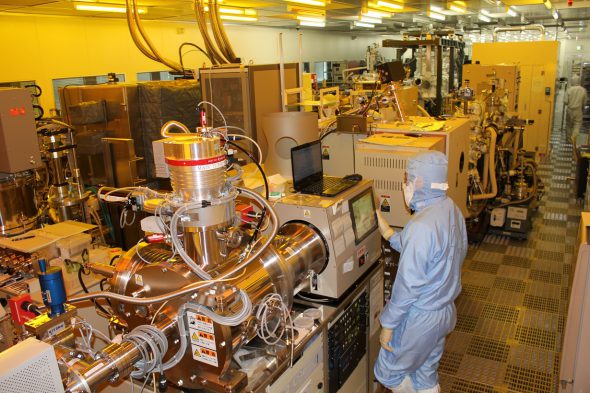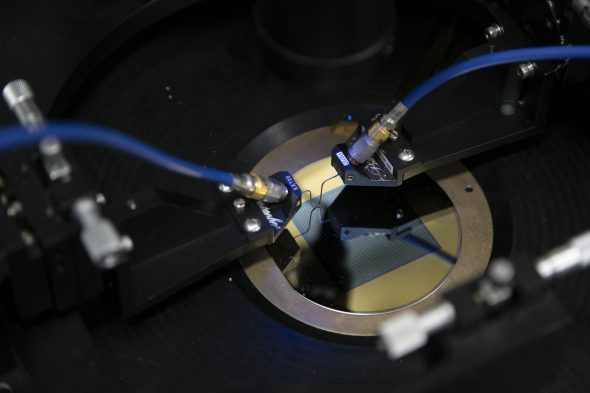-
About
- Kyoto Prize
-
Research Grants
-
Social Contributions
- Events
- News
This website uses cookies to improve the user experience. If you continue on this website, you will provide your consent to our use of cookies.
About
Research Grants
Social Contributions
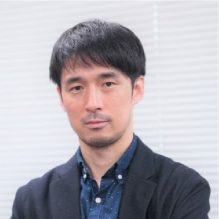
InaRIS Fellow (2022-2031)
Professor,Research Institute of Electrical Communication, Tohoku University*Profile is at the time of the award.
2022InaRISScience & Engineering
I am very happy to tackle this uncertain project, which I cannot apply for any other programs. I am very excited and at the same time terrified because I am not sure I can conclude the project within 10 years, but I will do my best. As this research has many interdisciplinary aspects, I look forward to fostering this project while meeting with many experts from various fields through this fellowship program.
Research has been conducted with the aim of realizing computers that utilize intrinsic properties of matters across all levels, from devices and architecture to algorithms, inspired by physical systems such as spin glasses and coupled harmonic oscillators as models. As examples, efforts have been made toward the realization of computers that perform computations using (1) probabilistic algorithms in systems consisting of connected superparamagnetic tunnel junctions, which operate probabilistically due to thermal fluctuations and (2) synchronization in coupled spin-torque oscillators, where the oscillation is induced by spin torque. To achieve this goal, the system has been broken down into individual devices and interactions between devices to establish elemental technologies. In addition, small-scale prototypes of computers where interactions are implemented using electronic circuits have been constructed and have been used to demonstrate the quantum simulation and AI computation.
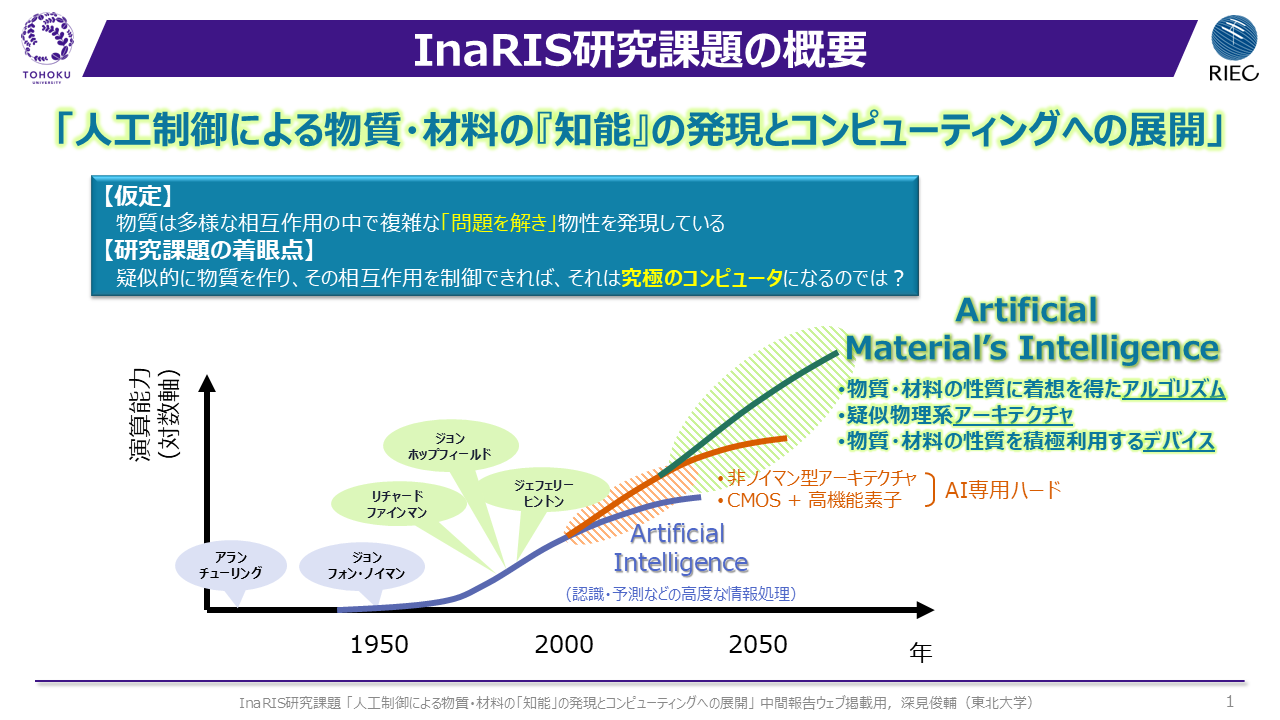
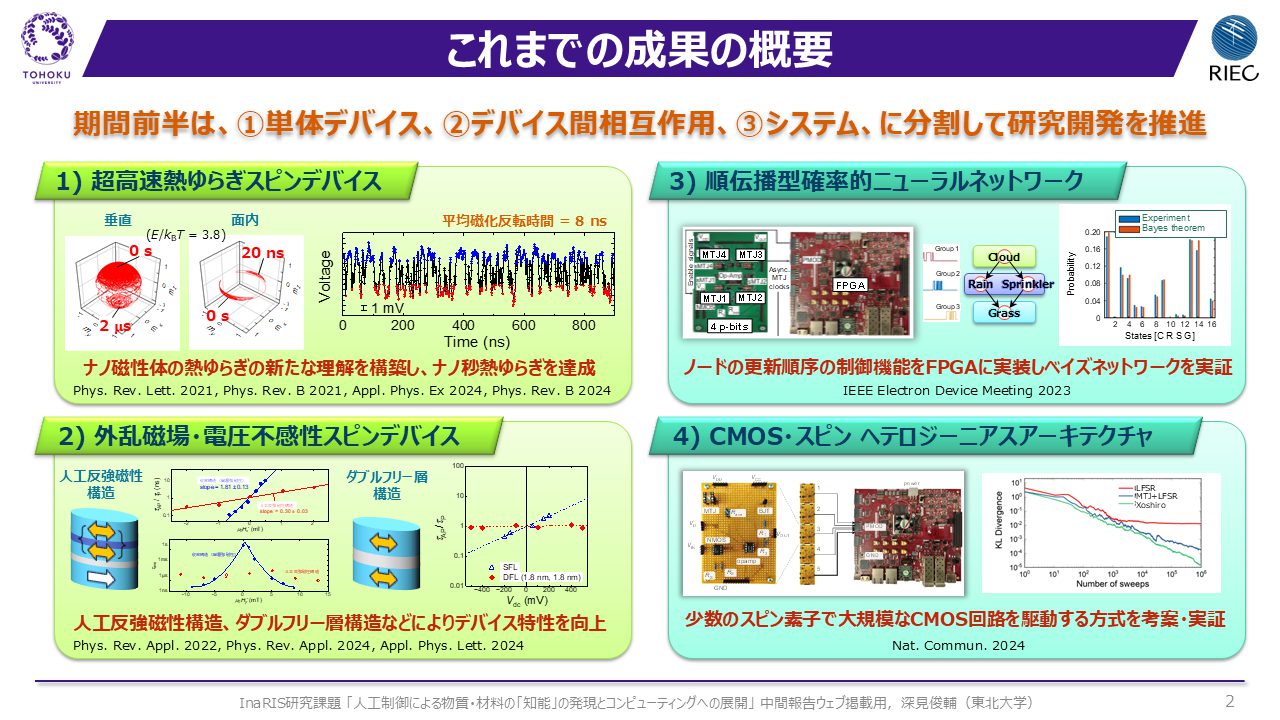
Local bifurcation with spin-transfer torque in superparamagnetic tunnel junctions. T. Funatsu, S. Kanai, J. Ieda, S. Fukami, and H. Ohno. Nat Commun 13, 4079, 2024. doi.org/10.1038/s41467-022-31788-1
External-Field-Robust Stochastic Magnetic Tunnel Junctions Using a Free Layer with Synthetic Antiferromagnetic Coupling. K. Kobayashi, K. Hayakawa, J. Igarashi, W. A. Borders, S. Kanai, H. Ohno and S. Fukami. Phys. Rev. Applied 18, 054085, 2022. doi.org/10.1103/PhysRevApplied.18.054085
CMOS plus stochastic nanomagnets enabling heterogeneous computers for probabilistic inference and learning. N. S. Singh. et al. Nature Communications, 15, 2685, 2024. doi.org/10.1038/s41467-024-46645-6
Double-free-layer stochastic magnetic tunnel junctions with synthetic antiferromagnets. K. Selcuk, S. Kanai, R. Ota, H. Ohno, S. Fukami, and K. Y. Camsari. Phys. Rev. Applied 21, 054002, 2024. doi.org/10.1103/PhysRevApplied.21.054002
Temperature dependence of the properties of stochastic magnetic tunnel junction with perpendicular magnetization. H. Kaneko, R. Ota, K. Kobayashi, S. Kanai, M. Elyasi, G. E. W. Bauer, H. Ohno, and S. Fukami. Appl. Phys. Express 17, 053001, 2024. doi.org/10.35848/1882-0786/ad43b0
Voltage-insensitive stochastic magnetic tunnel junctions with double free layers. R. Ota, K. Kobayashi, K. Hayakawa, S. Kanai, K. Y. Camsari, H. Ohno, and S. Fukami. Appl. Phys. Lett. 125 022406, 2024. doi.org/10.1063/5.0219606
Computing technology, which serves as the backbone of the modern information society, is based on the concept proposed by Alan Turing in 1936 and the architecture proposed by John von Neumann and others around 1945, and has improved exponentially in performance over the past half century, along with the development of semiconductor integrated circuit technology. Recently, the development of software technology, collectively known as artificial intelligence (AI), has enabled advanced processing such as recognition and prediction, and hardware specialized for these tasks has also been developed. However, the current methods that depend on existing integrated circuit technology are about to reach their limits, and it is needed to develop innovative computing technologies that are fundamentally different from conventional algorithms and architectures.
In the development of AI, John Hopfield’s suggestion in the 1980s about the analogy between the brain’s memory mechanism and spin glasses, and a proposal by Jeffrey Hinton et al. for learning using the Boltzmann distribution, a fundamental law of statistical mechanics, have played important roles. However, these computational algorithms require so enormous amount of computation in the execution by current computers based on sequential and deterministic operations that their direct use is impractical, leading to limited implementations in the current AI such as the restricted Boltzmann machines.
Dr. Fukami’s research proposal is based on an ambitious idea to bring out the “intelligence” inherent to materials by controlling them with artificial structures, and to realize the original idea of Hopfield and Hinton by constructing physical systems that obey complex physical laws. Dr. Fukami has achieved important research results that are foundational of this proposal. For example, he has explored device technologies that advance current computing, such as high-performance materials and devices for non-volatile magnetic memory (MRAM), and has also demonstrated proof-of-concept of brain-like computing and probabilistic computing using devices based on spintronics technology. This proposal aims to further explore the “intelligence” in materials, and to extend the application of such “intelligence” to algorithms and architectures.
Dr. Fukami is one of the world’s leading researchers in the development of novel computing based on spintronics technology, and with the support of the InaRIS Fellowship, over the next 10 years, he is expected to pioneer new “intelligence” in materials and bring about innovations in computing technology based on this intelligence, thereby realizing the integration of materials research with a wide range of academic fields such as information science, and contributing to the creation of a new paradigm in materials research.
Science & Engineering

